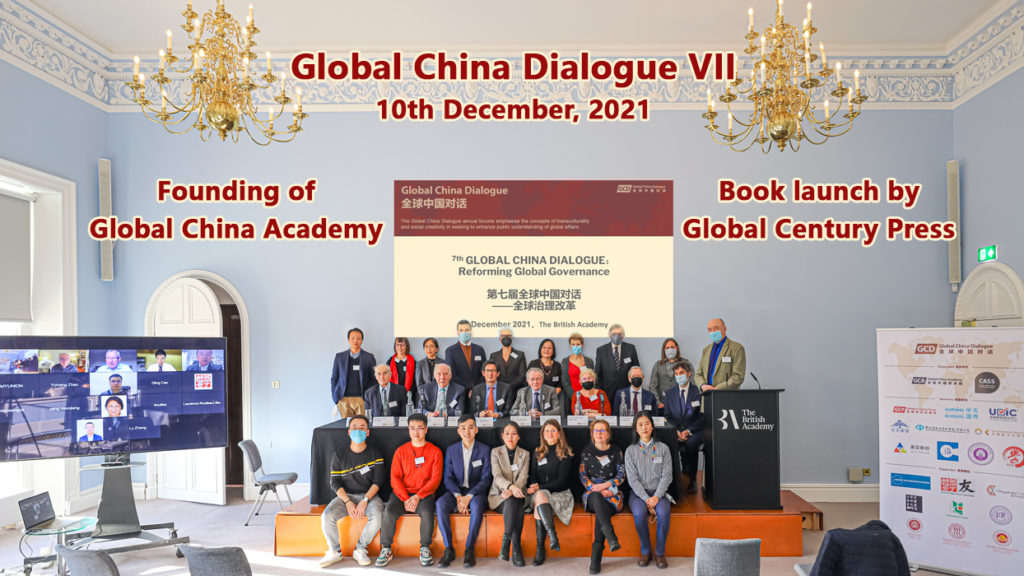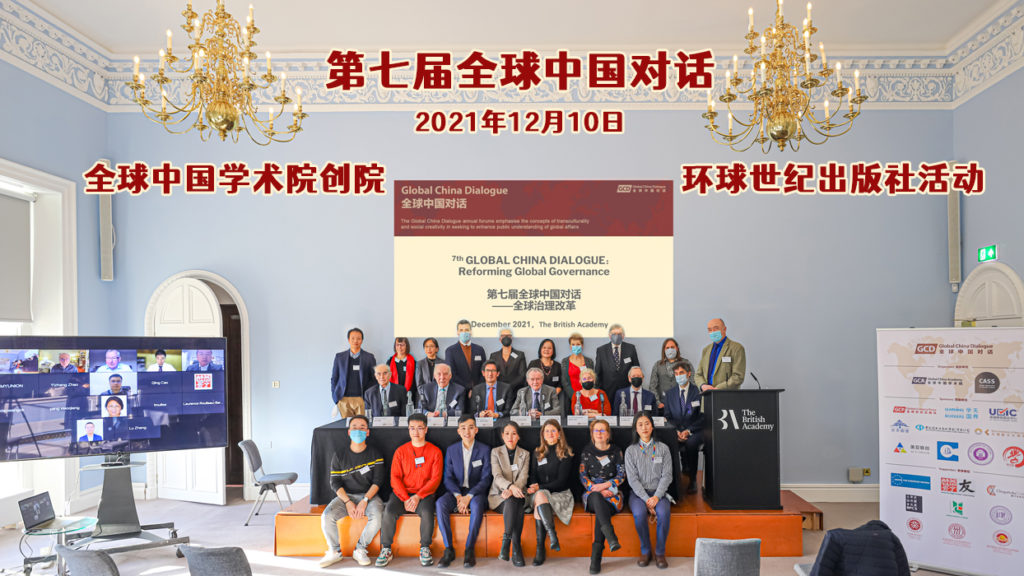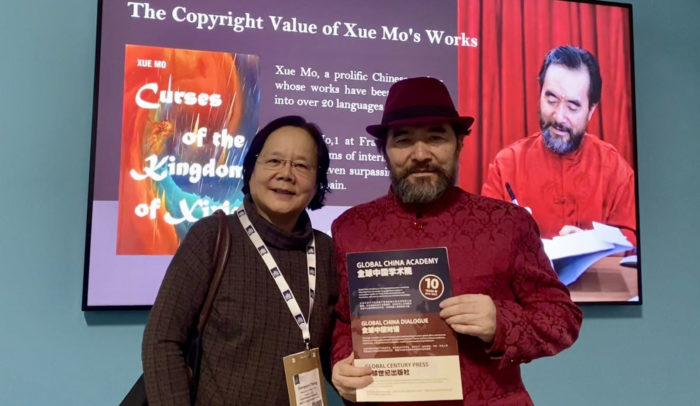
Global China Academy’s Activities in March 2024
There were three types of events that happened in March. They are: participating in the London Book Fair, which is one of two major events for GCA and GCP; the GCA Council and Chinese Council meetings; and GCA team activities.
Note: The text on this page is to be updated.
10 March
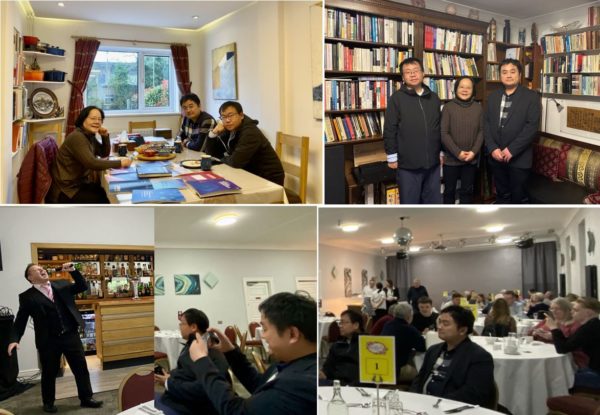
12th March
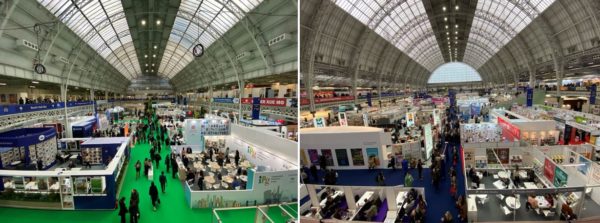

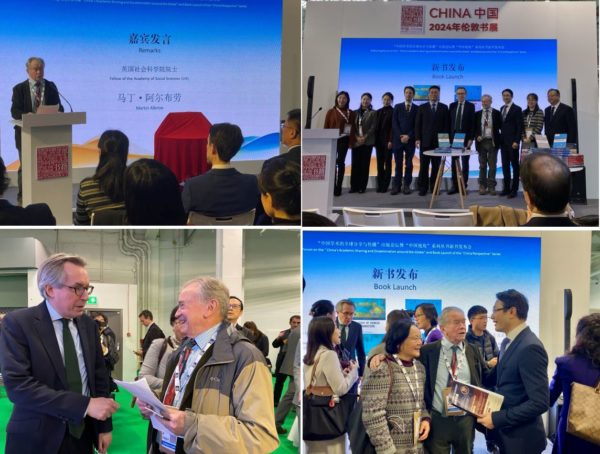
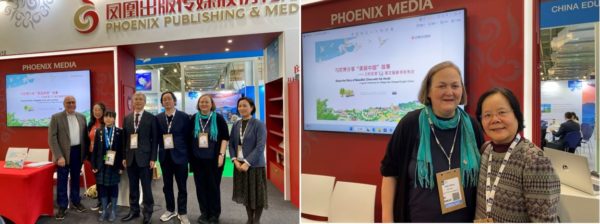
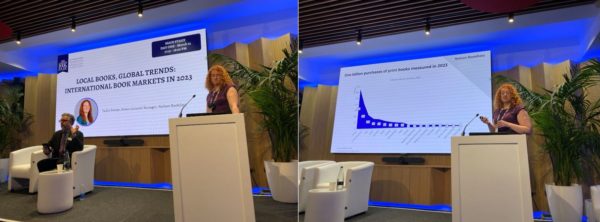
13 March




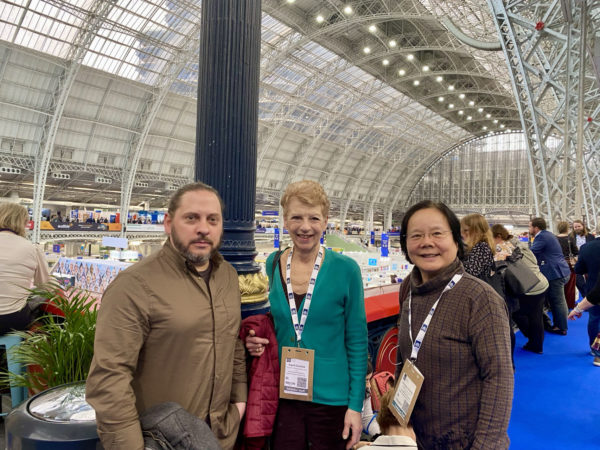
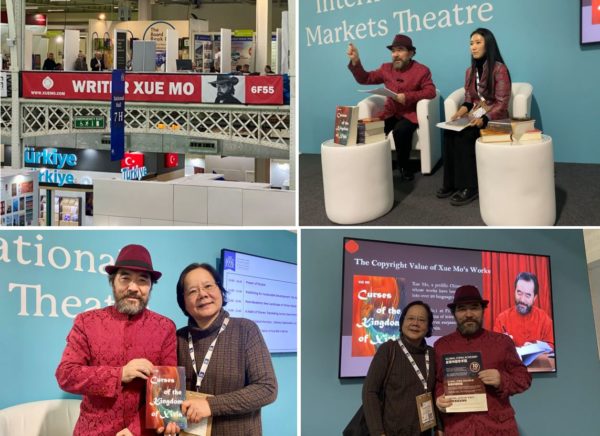
14th March


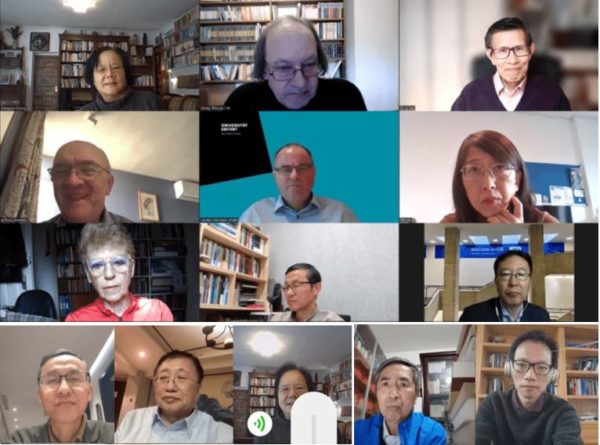
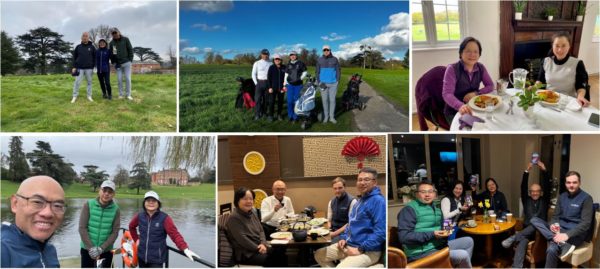
Click here to visit the GCA news & blog section.

Global China Academy Fellow Professor Carsten Herrmann-Pillath’s Academic and Social Missions in China, March 2024
Introduction
In mid to late March, Professor Carsten Herrmann-Pillath from Germany visited Shenzhen, China. He represented the University of Erfurt in signing a carbon neutrality strategic agreement with a Chinese university, research institution, and enterprises. He also visited Jintian Elementary School to observe its green and low-carbon practices and participated in the international symposium ‘Nature-based Solutions (NbS 2.0)’ hosted by the China (Shenzhen) Comprehensive Development Institute.
Timeline
In recent years, green sustainable development has become a global focus. From integrating carbon emission standards and addressing international carbon barriers to corporate ESG and product carbon footprints, these factors influence national strategies for carbon neutrality and peak carbon emissions. To deepen international cooperation and build an integrated ecosystem of industry, academia, and research, the Zero Carbon Industry Operations Center (Shenzhen) Co., Ltd., CNOOC, the University of Erfurt in Germany, Harbin Institute of Technology, and the China Development Institute (Shenzhen) have reached a strategic partnership. Professor Carsten Herrmann-Pillath from the University of Erfurt signed the cooperation agreement, aiming to enhance green and low-carbon industrial development through Sino-European standards and technological innovation cooperation.
On the 18th March, Professor Herrmann-Pillath, accompanied by Director Liu Yu and professors from Harbin Institute of Technology, visited the near-zero carbon campus project at Jintian Elementary School. This project, provided by the Zero Carbon Industry Operations Center, includes design, implementation, platform development, and a dual-carbon education system, making it a ‘Shenzhen City Green and Low-Carbon Scene Demonstration Base.’ Experts were impressed with Jintian Elementary School’s low-carbon practices, recognizing its globally exemplary model of integrating production and education.
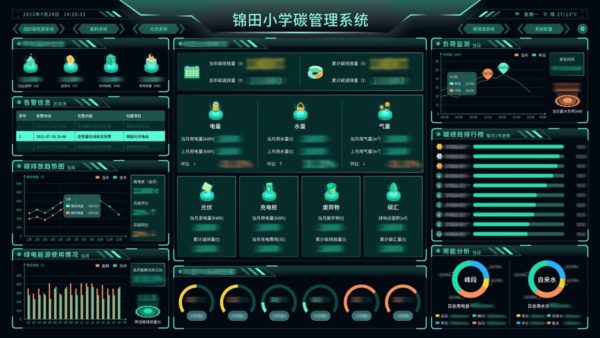
Professor Herrmann-Pillath was deeply impressed by Jintian Elementary School’s low-carbon practices. Not only has the school upgraded its hardware to be more environmentally friendly and established a carbon emission management system, but it has also introduced dual-carbon education to the students, which aligns with the core essence of education. From practical demonstrations to theoretical knowledge cultivation and subtle influence in daily life, this integration of industry and education forms a collaborative community for green sustainable development. This advanced and exemplary approach has global significance.
After the visit, experts learned about the achievements of the Zero Carbon Industry Operations Center in assisting enterprises with green low-carbon transitions. The center’s ‘Zero Tan Cloud’ platform, focused on carbon calculation, management, reduction, and elimination, has developed one-stop service capabilities and participated in setting various standards.
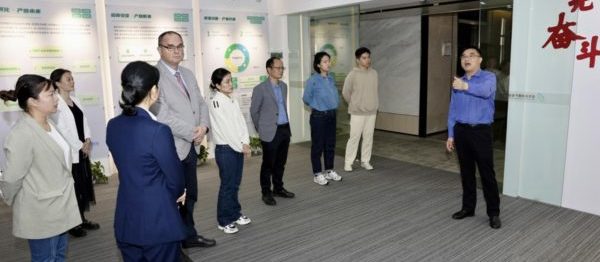
In 2022, the Zero Carbon Industry Operations Center and the Longhua District Government established Shenzhen’s first dual-carbon industry public service platform. Professor Herrmann-Pillath praised this innovative and advanced model, expressing his pleasure in becoming the first international expert in the dual-carbon expert pool.

Experts also discussed ESG, EU carbon tariffs, and Amazon Climate Pledge certifications, planning to conduct broader and deeper cooperation from a global perspective in the future.
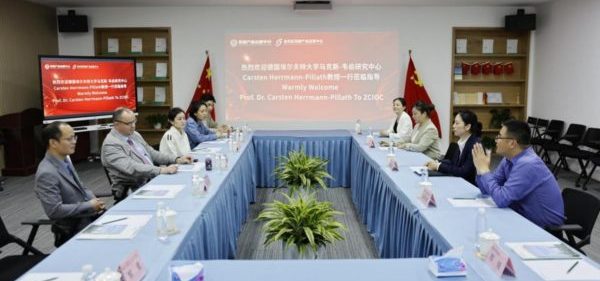
On the 19th March, 2024, the China (Shenzhen) Comprehensive Development Institute hosted an international symposium titled ‘Nature-based Solutions (NbS 2.0).’ Professor Carsten Herrmann-Pillath from the Max Weber Centre for Advanced Cultural and Social Studies at the University of Erfurt in Germany delivered the keynote speech on ‘Nature-based Solutions 2.0: Designing Biodiverse Cities.’ Experts and scholars from Tencent, the Shenzhen Municipal Policy Research Office, the Shenzhen Municipal Bureau of Ecology and Environment, Shenzhen University, and other institutions participated in the seminar to share new theories and practices in urban ecological civilization construction.
Nature-based Solutions (NbS) involve actions that protect, sustainably manage, and restore ecosystems to address societal, economic, and environmental challenges. Since being proposed by the World Bank in 2008, NbS has been increasingly applied to climate change, disaster risk reduction, food security, water security, ecosystem degradation, and biodiversity loss. In the context of building a Beautiful China, a significant theoretical and practical issue is how the cities in the Guangdong-Hong Kong-Macao Greater Bay Area can develop a new relationship between humans, nature, and society, promoting the coordinated development of ecology, society, economy, and culture.
Professor Herrmann-Pillath pointed out that NbS is an effective solution to climate change challenges, with biodiversity being the key. Cities play a crucial role in addressing biodiversity loss, despite emitting over 75% of global CO2. Designing biodiverse cities is essential, as emphasized in a recent World Economic Forum report, which suggests that cities should become places where nature thrives. This concept is gaining popularity in Europe, with initiatives such as the biodiversity city tour in northern Italy and the International Union for Conservation of Nature’s (IUCN) Urban Nature Index, which assesses cities’ support for biodiversity. Professor Herrmann-Pillath also discussed the practice of NbS in China, such as sponge city construction, and introduced Shenzhen’s Bao’an District Shanghe Park project, highlighting the importance of rewilding cities. He noted that Singapore leads globally, with 29.3% of its urban space covered by trees, providing more space for nature to evolve autonomously. Finally, Professor Herrmann-Pillath called for a fundamental change in our way of life to address future ecological challenges. He advocated for recognizing the rights of nature, respecting its freedom to evolve, and making nature a significant player in our ecosystems. This approach aims to create cities that are shared and mutually beneficial for both humans and non-humans, ushering in a new era of ecological and biocentric rights.
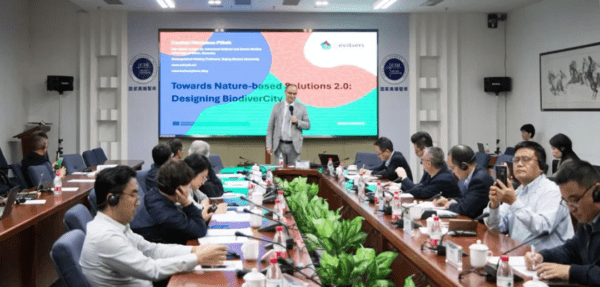
At the symposium, Wanda emphasized the significance of ecological civilization, biodiversity, and green development for China’s modernization, highlighting the need for strong protection measures to drive high-quality development. Zhai Yongping urged focusing on biodiversity loss and changing economic frameworks to balance profit with ecological preservation. He noted Tencent’s philanthropic support for new technologies but emphasized the need for broader collaboration. Huang Duobin shared Shenzhen’s Nature-based Solutions (NbS) experiences, including pollution control, low-carbon development, human-nature harmony, and valuing marine ecological products. Liu Chang highlighted Shenzhen’s proactive climate adaptation efforts, integrating goals into urban planning, developing monitoring systems, and promoting green infrastructure. Wu Wenyuan discussed integrating human life with natural rhythms in urban design and emphasized the need for management changes to implement NbS.
Professor Yuan Yiming discussed the development-ecology relationship, driving mechanisms for ecological progress, and the importance of institutional innovation, praising Shenzhen’s collaborative success. Liu Yu concluded by emphasizing global NbS exploration, proposing integrated climate and biodiversity solutions, and thanking participants for their insights.
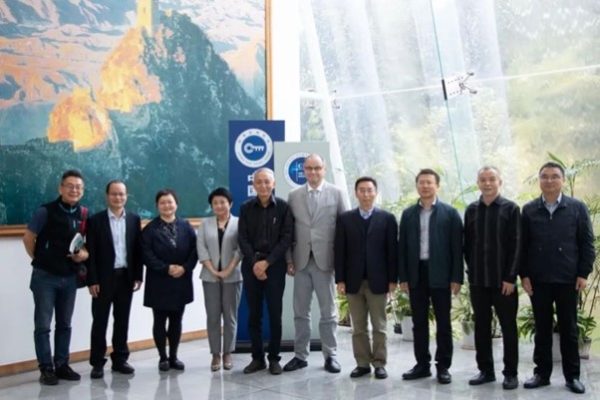

Selected Collections of Global China Academy Fellow Professor Chenggang Xu’s Audios and Videos
Introduction
In mid to late March, Professor Carsten Herrmann-Pillath from Germany visited Shenzhen, China. He represented the University of Erfurt in signing a carbon neutrality strategic agreement with a Chinese university, research institution, and enterprises. He also visited Jintian Elementary School to observe its green and low-carbon practices and participated in the international symposium ‘Nature-based Solutions (NbS 2.0)’ hosted by the China (Shenzhen) Comprehensive Development Institute.
Videos by Chenggang Xu
Professor Chenggang Xu 许成钢教授 FGCA, Senior Research Scholar at the Stanford Center on China’s Economic and Institutions and a Visiting Fellow at Hoover
Click here to visit webpage of Professor Chenggang Xu FGCA
许成钢教授 斯坦福大学中国经济与制度中心高级研究学者、胡佛大学客座研究员、全球中国学术院院士
点击这里进入许成钢教授视频页面
视频
以语言为基础的全球和比较视野的中国社会科学、人文、区域研究
点击以上文字在B站观看;点击右边图片在油管观看
其他视频
Professor Chenggang Xu 许成钢教授 FGCA, Senior Research Scholar at the Stanford Center on China’s Economic and Institutions and a Visiting Fellow at Hoover
许成钢教授 斯坦福大学中国经济与制度中心高级研究学者、胡佛大学客座研究员、全球中国学术院院士
点击这里进入许成钢教授视频页面
Highlights of the 7th Global China Dialogue in English and Chinese, a short version, and announcement of the GCD VIII theme
Highlights: Global China Dialogue VII, launch GCA, book & journal events (Narrations & a short version (34:44)
The 7th Global China Dialogue (Complete Edition) in Chinese (1:22:57)
Launch of new publications by Global Century Press at GCD VII
Launch Global China Academy at GCD VII
Martin Albrow 马丁·阿尔布劳教授 荣誉创始院长 Past Honorary Founding President of Global China Academy
LI Qiang 李强教授 (1949-2023) 创院院士 Former Dean of School of Social Sciences, Tsinghua University, China
XIE Lizhong 谢立中教授 创院院士 Director Research Centre for Social Theory, Peking University
ZHANG Xiaodong 张晓东教授 创院院士 Dean of IIE, Nanjing University of Finance & Economics, China
Video Presentations: by some absent Funding Fellows and Life Fellows at the launch GCA event
Carsten Herrmann Pillath 何梦笔教授 创院院士 Professor at Permanent Fellow at the Max Weber Centre at Erfurt University, Germany
BING Zheng 邴正教授 终身院士 Former vice President of Jilin University; Vice President of CSA, China
Peter van der Veer 彼得·凡·德·维尔教授 终身院士 E. Distinguished Professor at Utrecht University, Netherlands
Prasenjit Duara 杜赞奇教授 终身院士 Distinguished Professor and the Oscar Tang Chair of East Asian Studies, Duke University, USA
ZHU Guanglei 朱光磊教授 终身院士 Former Vice-President of Nankai University; Vice-President of the CAPS, China
Bettina Gransow 柯兰君教授 终身院士 Professor of Institute of East Asian Studies, Free University of Berlin, Germany
GU Yueguo 顾曰国教授 终身院士Emeritus Professor, Institute of Linguistics, CASS; Chief Expert of AI at Beijing Foreign Studies Uni., China
Video Presentation: by some absent Representatives of Organisers, Supporters and Sponsors at the launch GCA event
Thomas Clarke 托马斯·科拉克博士 Principal TF, Department of EEE, Imperial College London, UK
Yuan Cheng 程原博士 Country Head of Russell Reynolds Associates Greater China
HAO Fei 郝斐先生 CEO of UVIC Group; Director of Global Education & Innovation Research Centre, GCA
LI Wenhong 李红文女士 Exactive Director of China National Publications Import & Export Group
JIANG Biao 姜标先生 General Manager of M. Y. Union Technology Co. Ltd, China
SONG Yiping 宋义平博士 Co-Founder, Xueshuzhi (Academic Unwavering)
DU Yichao 杜怿超先生 PhD Candidate of UCL; Director of Wuxi New Culture Institute, China
Podcasts
Language-based social scientific, humanities, area studies on China with global and comparative perspectives.
Some audio records of the 7th Global China Dialogue (GCD VII) will be available online gradually.
Highlights: GCD VII, launch of GCA & GCP’s book & journal (with dub)


Title 1
Click here to watch videos of the Highlights of the 7th Global China Dialogue in English and Chinese, a short version, and announcement of the GCD VIII theme.
Click
Title 2
Click here to watch videos of the Highlights of the 7th Global China Dialogue in English and Chinese, a short version, and announcement of the GCD VIII theme.
Click

